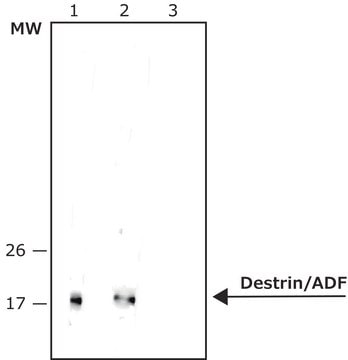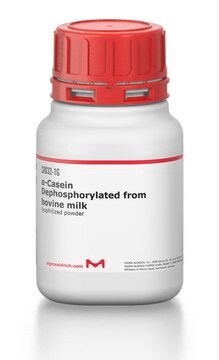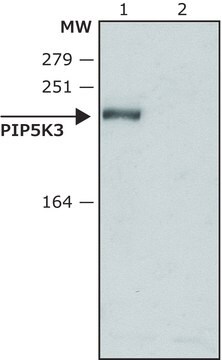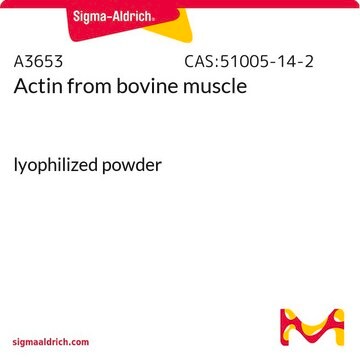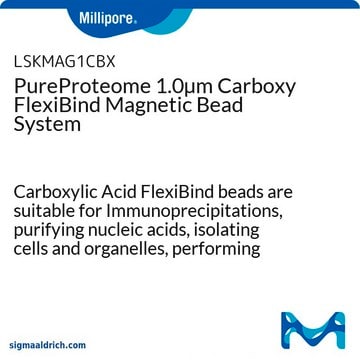Wichtige Dokumente
D8815
Anti-Destrin/ADF (GV-13) antibody produced in rabbit
affinity isolated antibody, buffered aqueous solution
Synonym(e):
Anti-Actin Depolymerizing Factor
About This Item
Empfohlene Produkte
Biologische Quelle
rabbit
Qualitätsniveau
Konjugat
unconjugated
Antikörperform
affinity isolated antibody
Antikörper-Produkttyp
primary antibodies
Klon
polyclonal
Form
buffered aqueous solution
Speziesreaktivität
human, canine, mouse, rat
Konzentration
~0.5-1.0 mg/mL
Methode(n)
indirect immunofluorescence: 1:100 using mouse NIH/3T3 fibroblasts
western blot: 1:1,500 using whole extracts of human A-431 epidermoid carcinoma cells, rat PC-12 pheochromocytoma cells, and dog MDCK kidney cells
UniProt-Hinterlegungsnummer
Versandbedingung
dry ice
Lagertemp.
−20°C
Posttranslationale Modifikation Target
unmodified
Angaben zum Gen
human ... DSTN(11034)
mouse ... Dstn(56431)
rat ... Dstnl1(296197)
Allgemeine Beschreibung
Immunogen
Anwendung
Biochem./physiol. Wirkung
Physikalische Form
Haftungsausschluss
Sie haben nicht das passende Produkt gefunden?
Probieren Sie unser Produkt-Auswahlhilfe. aus.
Hier finden Sie alle aktuellen Versionen:
Analysenzertifikate (COA)
Die passende Version wird nicht angezeigt?
Wenn Sie eine bestimmte Version benötigen, können Sie anhand der Lot- oder Chargennummer nach einem spezifischen Zertifikat suchen.
Besitzen Sie dieses Produkt bereits?
In der Dokumentenbibliothek finden Sie die Dokumentation zu den Produkten, die Sie kürzlich erworben haben.
Unser Team von Wissenschaftlern verfügt über Erfahrung in allen Forschungsbereichen einschließlich Life Science, Materialwissenschaften, chemischer Synthese, Chromatographie, Analytik und vielen mehr..
Setzen Sie sich mit dem technischen Dienst in Verbindung.